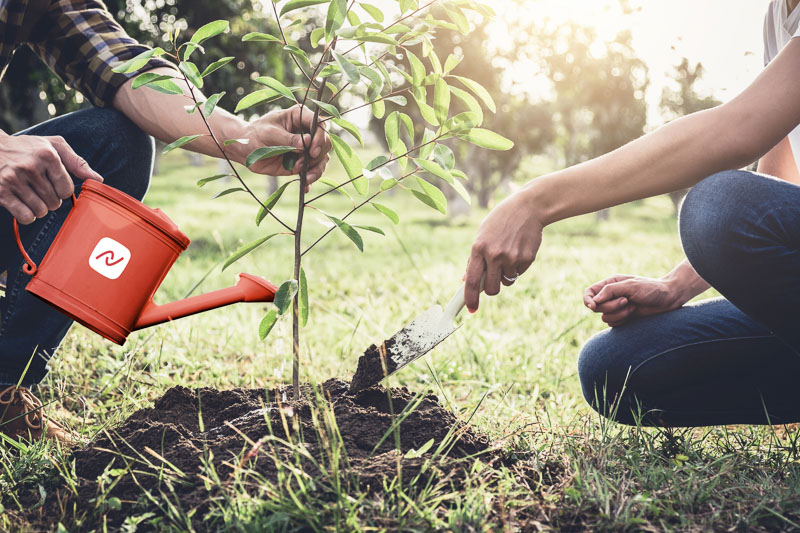Case study of our customer l'aventure Michelin: The Climate Partner projects that our customers can support are selected to focus on the 17 UN Sustainable Development Goals and fulfill many of the goals directly with measures on the ground.
166 kg of CO₂ neutralized: Tickets that protect the rainforest and improve lives
166 kg of CO² had to be neutralized for the production of the tickets. This was achieved with the combined project VERs + Regional Commitment. This is a project initiated by the Schutzgemeinschaft Deutscher Wald e.V. (German Forest Protection Association). Carbon offsetting is carried out entirely via a climate protection project that is certified according to international standards. The project protects over 97,000 hectares (climatepartner.com/1056) protects the forest in Pará on the Brazilian Amazon estuary and avoids commercial deforestation. It creates alternative sources of income for the local families, e.g. through trade in the açaí fruit. The largest Colombian REDD+ project protects 1,150,200 hectares of rainforest and preserves its biodiversity (climatepartner.com/1402). It provides education, healthcare, sanitation, food security and other social services for 16,000 indigenous people.

Climate protection is doubly effective with CO₂ offsetting worldwide and new trees in Germany
nagels supports all customers in calculating the additional costs to have their own project produced in a climate-friendly way. Get in touch - nagels will be happy to advise you.
10 of 17 targets supported

Production of organic açaí and sustainable agroforestry products instead of deforestation.
The project saves around 72,330 tons of CO2 emissions per year.
The project contributes to the protection of wetlands and water networks: 78 sub-catchments and numerous water catchment areas are of crucial importance for the species in the forest and all have their own valuable ecosystem. The project will conserve 136 fish species.
The project helps to preserve the rich biodiversity of the area, including 249 bird species, 198 butterfly species, 33 dung beetle species and 121 plant species. Many of these species are rare or endemic.



